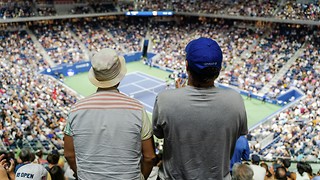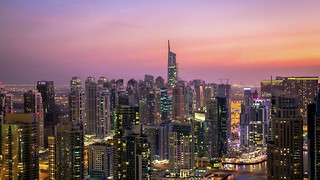Interview: Robbie Aird
Kenza Bryan talks to a graduating thesp about his three years immersed in Cambridge theatre, and what the future now holds

The sun is blazing on one of the first days of May Week, and I entice finalist Robbie Aird into doing an interview with the promise of ice cream on King’s Backs. Sadly, we end up in a far more sombre coffee shop – but he lights up with enthusiasm when I ask him about his time at Cambridge.
Having performed in thirty-five plays across his three years here, including The Bacchae and Titus Andronicus (as well as two European tours), Robbie guesses his ratio of ADC to non-ADC waking hours has probably been about half: “When I did my last show I had to take a moment to say goodbye to that stage. It had been where I’d grown up as an actor."
What comes across most strikingly throughout the interview is Robbie’s intense self-awareness: “I came from this place in first year when I wanted to do all this crazy surrealist this that and the other, and I’ve turned into an actor who prefers naturalism over anything else.” How quickly did he get into it? Robbie admits that his very first audition immediately led to a part, and although he sheepishly adds that he just “looked a bit too much like a hillbilly not to get it”, it’s clear that Robbie’s path hasn’t been a conventional one.
As one of the reviewers on the other end of Cambridge theatre, I ask Robbie about the nature of his relationship to student journalism: “It’s been really, really mixed. The trouble I find with Cambridge reviewing is that there isn’t any sort of standardisation.” In terms of responding to them as an actor, “you just have to try and ignore them. You’ve got to keep that integrity.” And Camdram? “My CV is pretty much just a copy-paste of what’s there. You filter it down.” Two years ago, Robbie told Varsity he thought Cambridge needed more experimental theatre – I ask him whether he thinks he’s contributed to that happening. “The problem is, we’re all still learning” he replies, “and you’re only able to do those crazy things either if you’re a visionary or if you’ve got the basis of knowledge already. There’s no point in going out on a limb unless you know where you’re going from.”
Isn’t that what he tried to do in writing Drink Me, a dark, surrealist piece of theatre? “I tried to, but the end result was very very tied to standard theatre. My attempts to be crazy and weird were arrogant. I wanted the Cambridge theatre scene to be more like the German theatre scene, which is mad.”
In defence of the ADC, his “spiritual home”, Robbie declares, “we’re no more bitchy or nepotistic than any other society – we’re just more dramatic in the way we do it! And so it gets more press.” Perhaps it’s during the brief time when he started being given “much much smaller” parts that Robbie became more self-analytical. “You need to be so careful of entitlement as an actor. When I arrived at Cambridge, I thought I was good, but then realised I wasn’t. Now I think I’m okay. The most praise that I ever got for a performance was Frost/Nixon, and I left the ADC that night feeling ten times as insecure because of it”.
Has his own approach become more pragmatic? “Definitely. I’ve had a lot of rejections, but I’ve always auditioned for everything – every single play.” He auditioned twice for the role of Stanley in a Streetcar Named Desire – with no recall – which he says now seems completely unsurprising: “I’m too lanky, I’m too skinny, I don’t look great with my shirt off. I aimed in the wrong direction.” When I suggest that he likes to take self-deprecation to the extreme, he shakes his head: “Every actor has a type – a limited range.”
Humble though he may be, Robbie is now going on to the Central School of Speech and Drama, following in the footsteps of the likes of Laurence Olivier and Rupert Everett. For a whole year, he’ll “be at school from nine until six every day. It’s going to be the biggest culture shock.” And, within a decade, he hopes to be somewhere at the National Theatre. “I’ll try until my knuckles bleed to become a professional actor.”
For the moment, he wants to start a small theatre company with a few fellow graduates. “If you’re not getting work, just put a play on in a room somewhere for ten people... it’s better than not acting”. Can he see himself acting professionally under the direction of a fellow Cantabrigian? “It’s a fun fantasy to play with.”
I ask if he thinks he’ll ever be able to recapture the freedom and ability to experiment that Cambridge theatre has provided him, and he replies light-heartedly: “probably in the years of unemployment that will follow...”
 Features / The community Cambridge accommodation creates (and doesn’t)9 August 2025
Features / The community Cambridge accommodation creates (and doesn’t)9 August 2025 News / Trinity sells O2 Arena lease for £90m12 August 2025
News / Trinity sells O2 Arena lease for £90m12 August 2025 Features / Incoming freshers and their hopes, fears and expectations for Cambridge 12 August 2025
Features / Incoming freshers and their hopes, fears and expectations for Cambridge 12 August 2025 Lifestyle / An ode to college accommodation11 August 2025
Lifestyle / An ode to college accommodation11 August 2025 Sport / ‘A full-time job with overtime’: should disparities change the way we approach Bumps?6 August 2025
Sport / ‘A full-time job with overtime’: should disparities change the way we approach Bumps?6 August 2025









